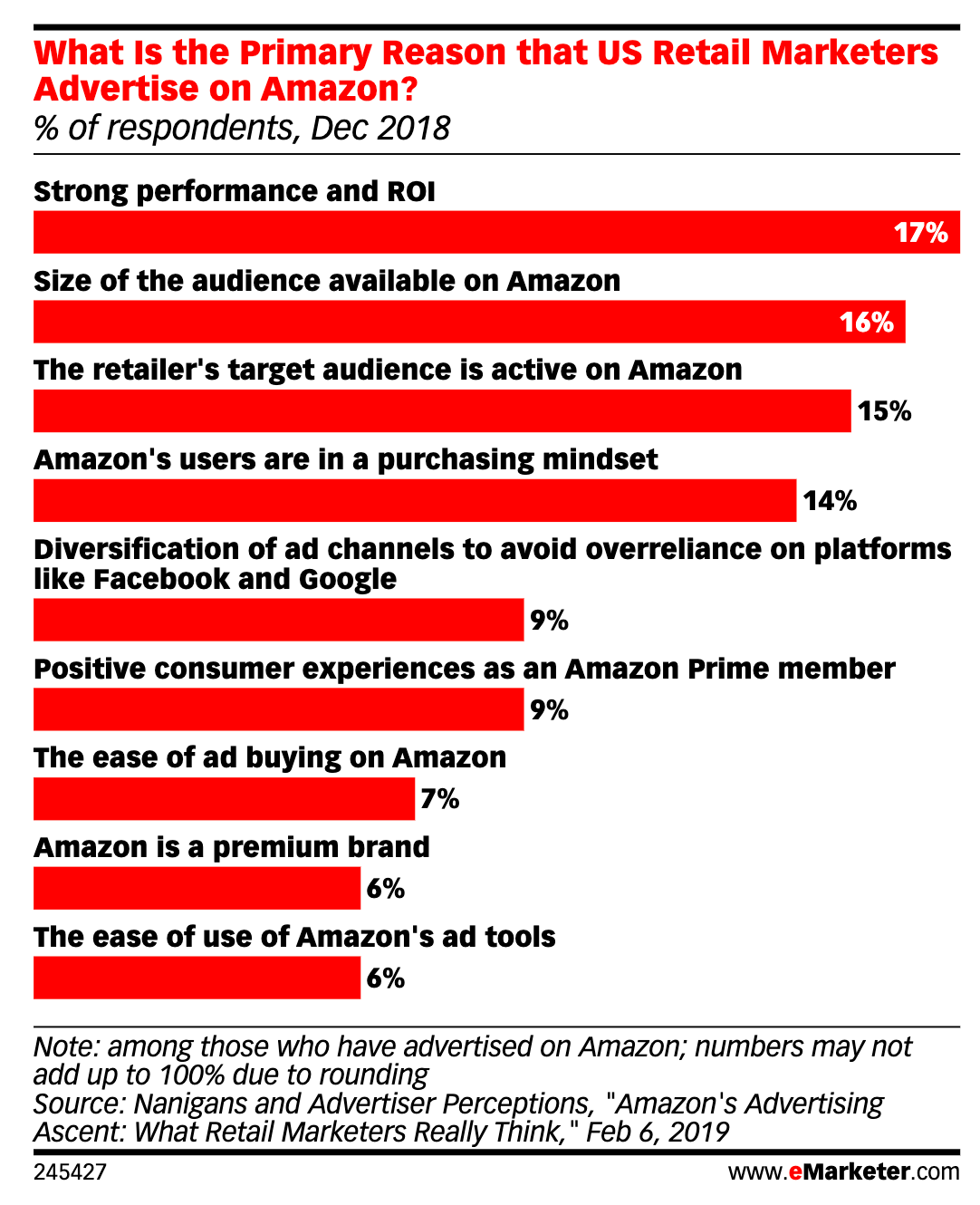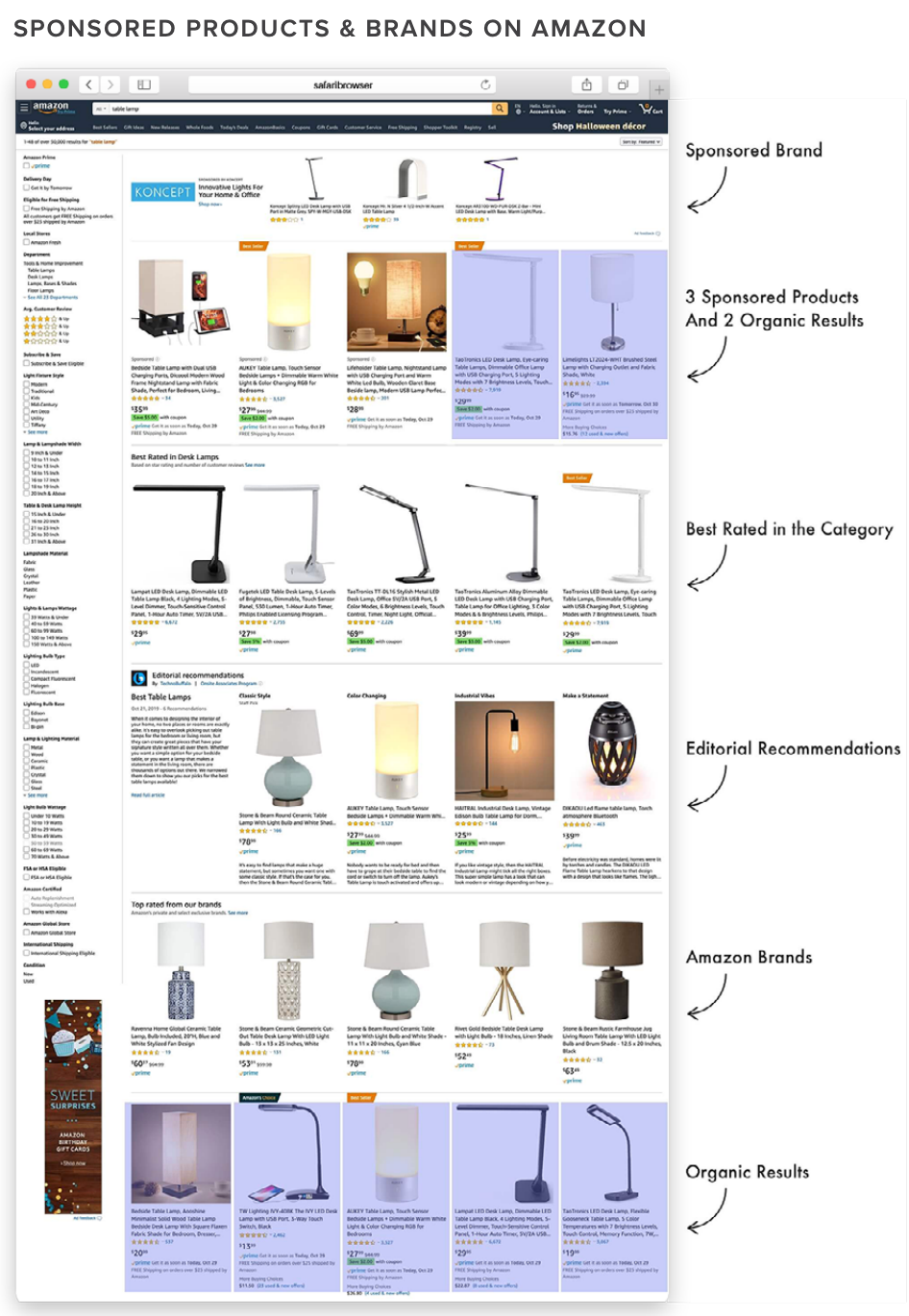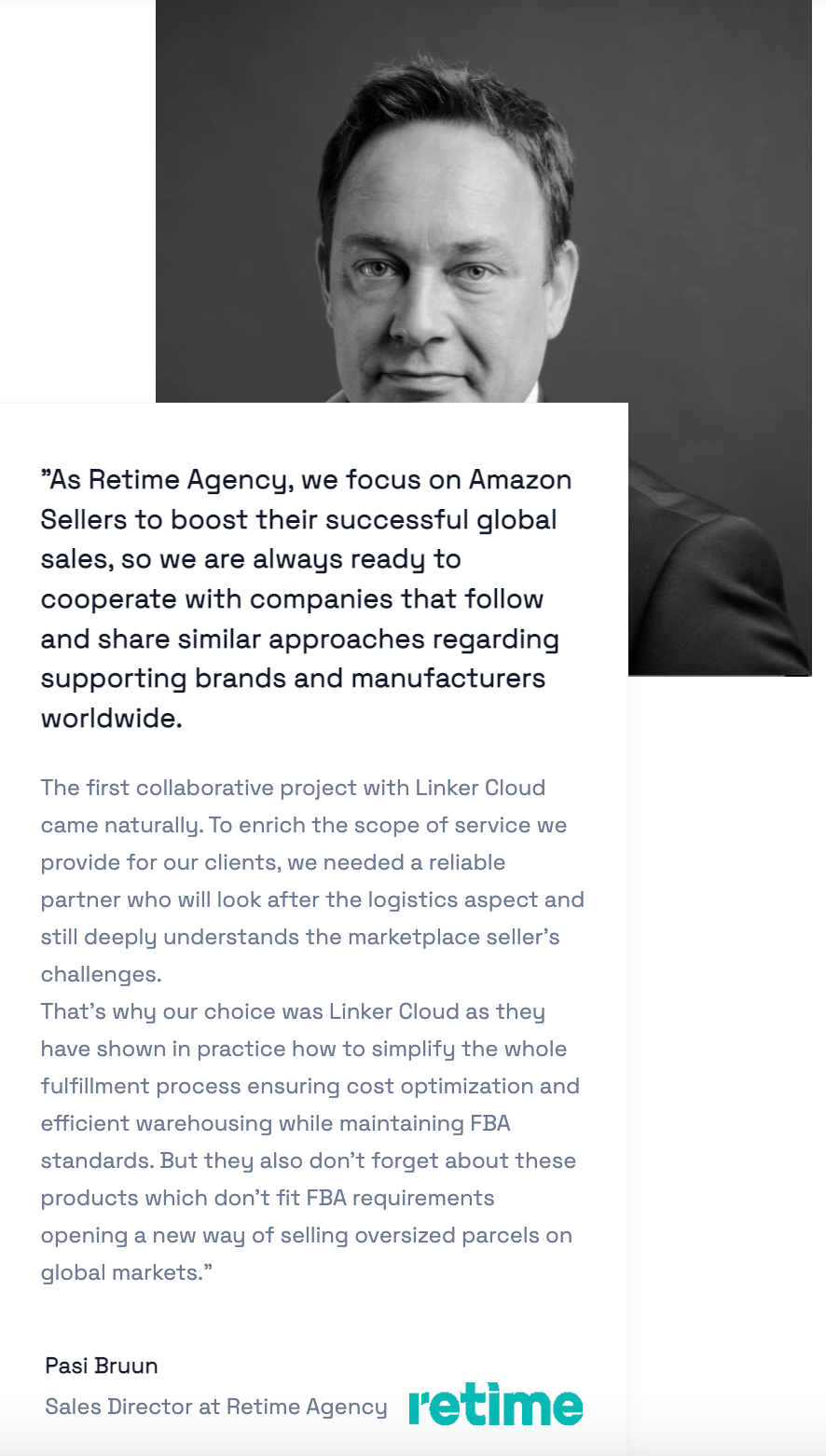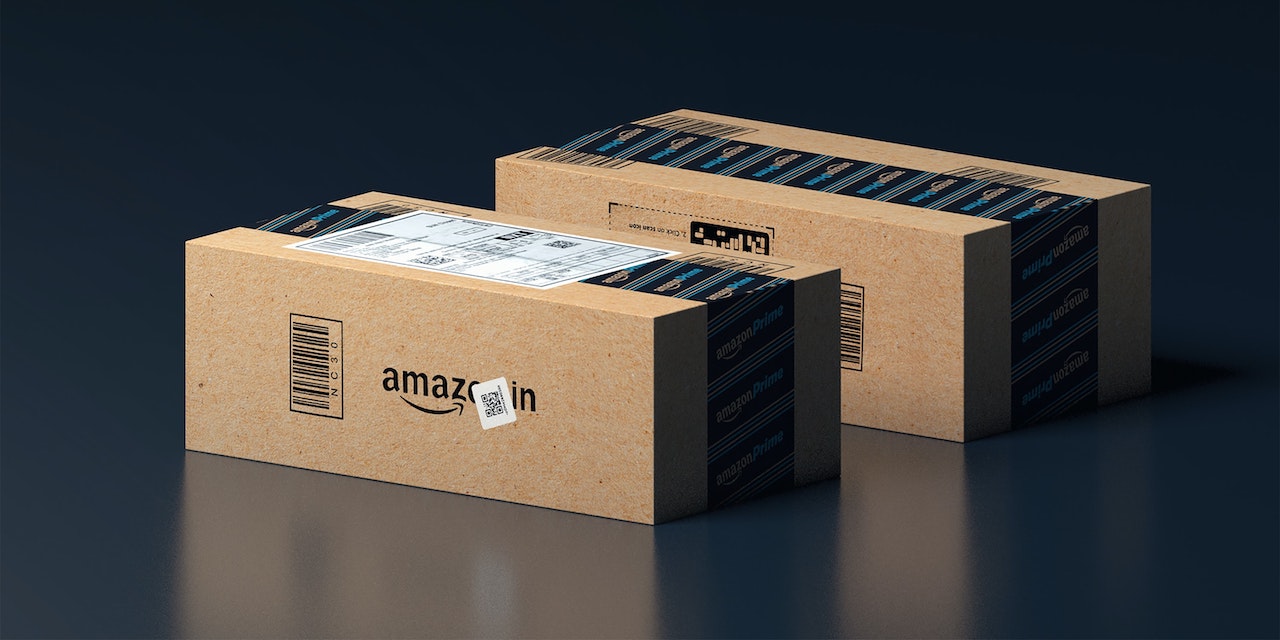In order to answer your request, we are obligated to process the data given above. Sometimes, however, we would like to use them for slightly different purposes, such as statistical data or informing you about our new products and services.We promise that we will use the given information for communication purposes only. We also remind you that you can unsubscribe from our mailing at any time (see Privacy Policy).
The plan to dominate the retail world, in fact, to control one of the largest marketplaces on the market, sounds like a dream come true for many merchants.
However, success, in this case, is more than just luck - the way to gain new and loyal buyers is to have a well-thought-out plan and choose the right sales strategy.
So how do you break into one of the most popular marketplaces - Amazon - thanks to smart usage of advertisement and finding the most relevant keywords? And how do you make smart use of FBA (fulfillment by Amazon) while still dealing with the challenges this service poses?
All these questions will be answered in today's article!
Amazon sales: one step ahead of the competition
The key to success in any industry is to learn as much as possible about it. This principle also applies to Amazon sales - only solid background knowledge will put your amazon seller account ahead of your competitors, thanks to, for example, smart usage of keyword research or winning a buy box. But don't worry - we'll be happy to help you gather the necessary information.
However, remember that the competitive marketplace environment changes relatively quickly - the winners will be those retailers running an online business who can adapt to new developments. This flexible approach will minimize the cost per click in the advertising process - while maximizing conversions.
In order to understand these mechanisms well, we need to start from the starting point and understand how our target audience uses the marketplace. As Allie Decker, a partner at Omniscient who has previously worked for digital giants such as HubSpot and Shopify points out:
“Today’s consumers don’t just use Amazon to buy stuff. They also use it to check prices (90% of consumers use Amazon to price check a product), discover new products (72% of consumers visit Amazon for product ideas), and start product searches (56% of consumers visit Amazon before any other site).”
Thus, it is worth pointing out that an investment in advertising on the largest of the marketplaces is really worthwhile and the reasons for betting on this tactic go far beyond the measurable ROI:

Figure 1: sub-principal reasons why US retail marketers advertise on Amazon, as compiled by eMarketer.
Of course, organic (Google) search results are important - and I will point this out in the next paragraph of this text. However, Amazon and other marketplaces have increased the role of paid advertising; so if you want to be at the top of the product listings, you have to bet on it.
The times when it was enough to publish an advert are over. Today, to be successful, you need to put in a lot of work and... investment. It is worth knowing that investing in paid advertising also supports organic activities and this synergy influences the growth of Amazon sales. If one of your products sells better than others and is higher on the product listings, we have a pro tip: reallocate ad investments to other products and thus other keyword phrases.
Pssst... A picture means more than a thousand words. If you don't believe in the power of paid offers, take a look at the screenshot below from the Marketplacepulse portal:

Sponsored product advertising on Amazon developed by Marketplacepulse portal.
Sold out! Amazon sellers know the power of keyword research
Search results and their optimisation are a real weapon in the hands of retailers - we all know how important it is to be at the top of the product listings and include taking care of Amazon backend keywords in our marketplace marketing strategy.
But what needs to be done to get high volume search terms and be on the first search results page? Primarly - you don't have to do everything yourself. Some brands use keyword tool which make the work much easier and boost sales thanks to finding proper related keywords. For my part, I can recommend Jungle Scout, for example. Test it and see if the search engine results have improved.
Don't forget long tail keywords and measuring performance metrics. Bet also on content marketing - using relevant words can drive external traffic in a short time thanks to writing valuable blog post. What's more, use keywords in product title, and enrich product ads by specific keywords. Note also that the more detailed the description, the easier it will be for you to avoid negative feedback; and the larger the pool of satisfied customers - the greater the likelihood of running an successful Amazon business and the possibility that your product appears on the top of Amazon listings. The same rule applies also to adding detailed product images.
Psst... There are tools to ease other aspects of working on sales in the marketplace. These include the specialised repricing tools. Let's not hide - the product prices are important; you can therefore plan product sales to encourage customers to make additional increased purchases.
Amazon selling tips vs Amazon FBA
Amazon as a marketplace is a real giant and a great solution for sellers. The company has relatively recently responded to its logistical needs by introducing FBA, or fulfillment by Amazon, which minimizes delivery times and transit costs thanks to a wide range of warehouses located around the world. And let's don't forget about one more benefit: using the FBA increases the likelihood of winning the desired buy box.
However, this is not ideal, as many users have pointed out. This is because not every Amazon seller can use FBA - check below for the limitations of this tool:
-
Storage limitations
Let's face it - storage space is always at a premium, even more so in times of rapid growth in the ecommerce industry. Online shoppers buy more, which generates more revenue - but also multiplies the number of orders, which leads to... depletion of storage space. Every Amazon store I know that the company is therefore rewarding those of them who ship as many parcels as possible in a month, and does not want to go after those whose goods do not rotate as quickly.
What does this mean in practice? Amazon has introduced a storage limit for individual seller accounts of 10 cubic feet. You will also note that these limits apply to different product types. Thus, it would be ideal to sell more - while keeping inventory levels to a minimum and thus improving IPI (inventory performance index) scores.
-
The matter of SKU labeling
Amazon requires the use of very specific types of labels. In addition to the manufacturer's SKUs, marketplace sellers have to use a so-called Fulfillment Network Stock Keeping Unit (FNSKU). This is a kind of identifier of your item among other similar goods - a mechanism that makes sense in itself. However, you must use it to rely on the FBA. So where is the catch? The cost of such a label is an exorbitant $0.55 apiece.
-
Aged Inventory Surcharges
In addition to the above requirements, any Amazon seller wishing to take advantage of the FBA must pay a fairly hefty fee for inventory that remains in marketplace warehouses for too long. Since 15 May 2022, sellers whose inventory has been in stock for between 271 and 365 days will pay a premium of $1.50 per cubic metre for all overdue inventory. And that's not the end of the bad news: inventory held for longer than 365 days is assessed a surcharge of $6.90 per cubic foot or $0.15 per unit.
As you can see for yourself, the challenges and costs associated with wanting to use the FBA are multiplying.
But there is good news - you don't have to rely on fulfillment by Amazon; you can use the services of other providers who can help you work around these issues while still successfully selling on the Amazon platform.
As Linker Cloud, we are happy to help with amazon fba oversize dimensions oversized items or electronics and other products not handled by FBA; we can also act as a intermediate warehouse - a place where you can store larger quantities of your goods and easily replenish your FBA stock, meeting the required standards of quantity, labelling and timing.
Check out our offer dedicated to Amazon sellers - and grow your business on marketplace even more effectively!

Find out how we operate - and fill in the form with your request for an offer:
https://go.linkercloud.com/fba-logistics-challenges
Summing up, or how to generate more sales in a few simple steps
If I had to summarise the most important conclusions of this text, I would put it down to drawing your attention to improving search results, trying win the buy box (I wrote more about this topic in my previous post: 5 tips for rapid business growth on Amazon guide), writing detailed product descriptions, collecting positive reviews and adding high quality images and gaining valuable social proof.
This way you will reach new potential customers, gain more external traffic and stay ahead competitor's product. Selling on Amazon can be a great business adventure allowing new international markets to be won. Remember: if you focus on Amazon processes and strictly adhere to Amazon's guidelines, your product will appear on the first page and you will gain a loyal customer base.






.webp?quality=low)